Features
BANGLADESH: AFTER THE BLOGGER MURDERS
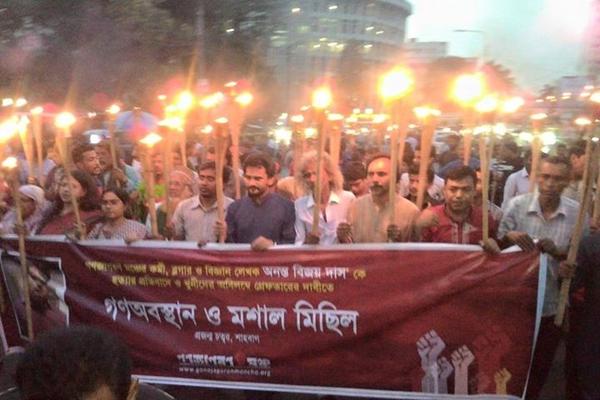
by Nava Thakuria, World War 4 Report
Amid the heat of protests over the killing of three secular bloggers this year, the government of Bangladesh has banned an Islamist militant group named Ansarullah Bangla Team (Volunteers of Allah Bangla team). The government of Prime Minister Sheikh Hasina issued a notification May 25 declaring the group outlawed under the Anti-Terrorist Act of 2013. The most recent victim, hacked to death May 12 in a street attack in the northeast city of Sylhet, was Ananta Bijoy Das, 33. At least four assailants chased Das as he was headed for his office in the morning hours, killing him in full public view. Das was hurried to a local hospital, but the attending doctors declared him dead.
Das was the former editor of a Bengali-language periodical entitled Jukti (meaning Logic), and also wrote for Mukto-Mona, a website developed and moderated by atheist blogger Dr. Avijit Roy—who faced a similar end three months earlier in Dhaka, the country's capital. Das, who also campaigned for banning Islamist parties, had faced threats for his activities. Dr. Roy, 43, was slain on February 26, and his wife Rafida Ahmed Bonya was seriously injured in the attack. Another Bangladeshi activist-writer, Washiqur Rahman Babu, 27, was slain under similar circumstances in Dhaka on March 30. The only visible reason for their brutal murders was that they were free-thinkers who spokes out against the fundamentalists of all religions, including the Islam.
U.S. FAILING SYRIAN REFUGEES
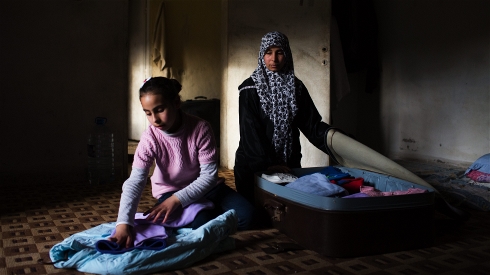
by Philippa Garson, IRIN
The United States may be the global leader in refugee resettlement, but so far it has opened its doors to a mere 1,000 Syrians looking for a safe haven from their war-torn country. Human rights groups, members of Congress and city planners are among those trying to persuade President Barack Obama to allow more Syrians to settle here. However, security concerns, anti-immigration sentiment and bureaucratic hurdles all stand in the way.
It has taken the world a long time to acknowledge that most of the 12 million Syrians displaced—inside and outside their country—by the five-year civil war will not be going home anytime soon. Neighbors Jordan, Lebanon and Turkey have absorbed nearly four million Syrians between them. Other countries have been slower to step up to the plate, particularly in terms of pledging to take some of the 88,000 Syrian refugees allocated for resettlement by the UN's refugee agency, UNHCR. Twenty-eight countries have so far agreed to take in 62,000 of them—with Germany taking nearly half.
THE NICARAGUA CANAL PLAN
Resistance to Dispossession
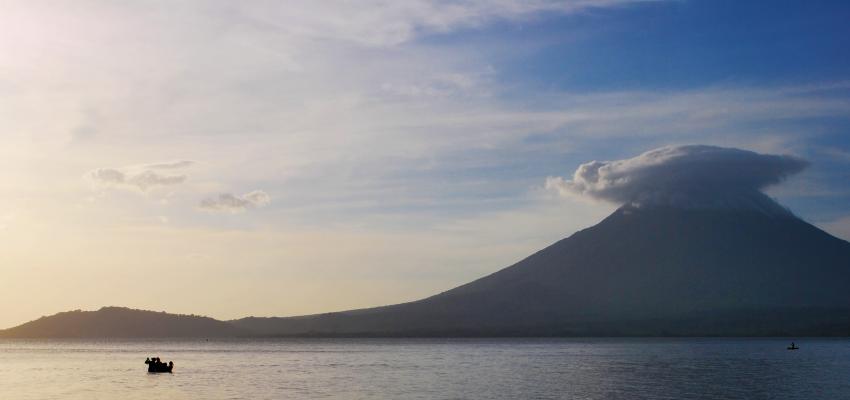
by Tania Paz, AIDA
"How do I explain do my son that to be a landowner will soon mean to be an employee?" asked a woman who may soon lose her land because of the proposed Nicaraguan Interoceanic Grand Canal. Her question resounds in my head each time I hear news of the canal's construction.
There is nothing more valuable than a piece of land to cultivate, land you’ve dreamed of your whole life, land that your children will some day inherit, land that makes the early mornings and long days working under the hot sun worth it.
People throughout Nicaragua have said "no" to the proposed canal. They have decided to fight because they're not willing to lose their dreams for nothing more than the promise of a job.
AGAINST THE IMPERIAL 'WE'
The Fight Against ISIS is My Fight
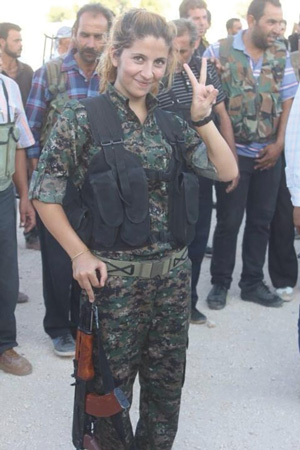
by Bill Weinberg, The Villager
Most "anti-war" folks in the US (like nearly everyone else) are in the dangerous habit of referring to the government with the pronoun "we." This rhetorical convention fosters the illusion that "we" commoners have any voice in Washington's foreign policy (beyond assenting with our silence or, optimistically, restraining somewhat through protest). It betrays more naiveté than cynicism about the nature of power in this country. There is no area where the US behaves more like an empire and less like a democracy than in waging war. Even Congress is rarely consulted—much less its lowly constituents.
This pronoun also burdens the question of US military involvements with a personal sense of (for the anti-war crowd) guilt or (for their jingo opposites) pride, barring a more distanced and objective view. For both the peaceniks and the jingos, use of "we" constitutes an imperial narcissism—an identification with the empire that makes the question about "us."
So when Ted Rall in The Villager last month asked, "Why are we at war with ISIS?"—my reply is, "Who is asking, and what is your stake in the question?"
ASYLUM SEEKERS DETAINED —FOR PROFIT
Detention centers hold asylum seekers needlessly, as operators rake in millions
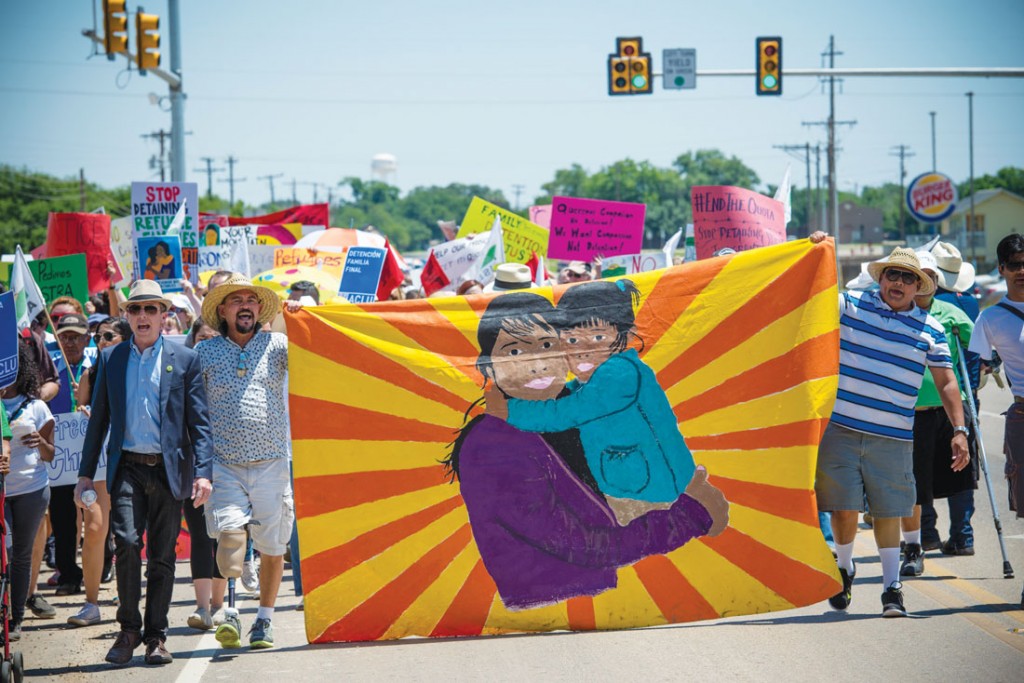
by Peter Gorman, Fort Worth Weekly
In response to 2014's unprecedented number of women with their children caught crossing the border between Mexico and the United States—68,000 families—President Obama expanded on a program of family detention that had nearly been phased out in 2009. Family detention, where a woman is kept with her children until a deportation or asylum hearing can take place, had only 100 beds available daily in a small Berks, Pa., facility between 2009 and 2014. But with the opening of two new family detention centers in Texas and an expansion of the Berks facility, that number will reach about 3,700 in the next month and eventually balloon to 6,300.
The program was shut down when the American Civil Liberties Union and the University of Texas won a settlement in a federal lawsuit against Immigration and Customs Enforcement for deplorable conditions for children at the T. Don Hutto family detention facility, a former medium security prison in Taylor, Tex. Those conditions included locking families in cells for 12 hours daily, depriving children of outdoor recreation, and forcing them to wear orange jail jumpsuits.
Nearly all of the families currently in the detention centers, which are less restrictive than normal prisons, are seeking asylum. The vast majority of those who arrived in the 2014 wave came from El Salvador, Guatemala, and Honduras, countries that have seen a huge increase in violence in the past few years, largely due to Mexican drug cartels moving into those countries.
TAIWAN: ONE YEAR LATER
Looking Back and Forward Through Sunflower-Colored Glasses
by Ian Rowen, American Citizens for Taiwan
Taiwan before the Sunflower Movement seems almost a bad and distant memory. Just a year ago, ruling party Kuomintang (KMT) legislator Chang Ching-Chung was nearly able to ram the Cross-Strait Services Trade Agreement (CSSTA) through the committee review process in 30 seconds. Legislative Speaker Wang Jin-Pyng was facing expulsion from the KMT. President Ma Ying-jeou was still making serious efforts to meet with China President Xi Jinping and push a “peace treaty” that would recognize Taiwan as a part of China, never mind the wishes of its people.
All of that changed on March 18, 2014, when students and civil society stormed the Legislative Yuan. A day later, I climbed a ladder to join them inside the building for what I foolishly thought might be a quick research visit, but instead turned into one of the most harrowing and exhilarating episodes in not only the lives of myself and other eyewitnesses and participants, but in contemporary Taiwanese history. No one could have predicted how different the map would look a year later, after those 24 days of peaceful, student-led occupation led the island in a new direction.
IS TIBET A COUNTRY?
The Case for a Legally Independent State
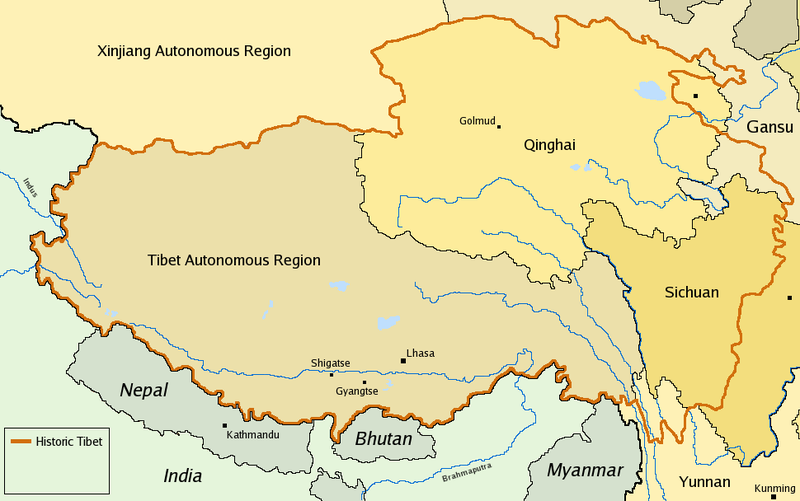
by Michael C. van Walt, Free Tibet
Tibetans say their country is an independent nation: the Chinese government says it is part of China. Who is right? Michael C. van Walt is an international legal scholar and a board member of the International Campaign for Tibet. In this analysis, he finds that Tibet's legal status remains that of an independent state under illegal occupation.
China's Claims
The People's Republic of China (PRC) claims that Tibet is an integral part of China. The Tibetan government-in-exile maintains that Tibet is an independent state under unlawful occupation.
If Tibet is under unlawful Chinese occupation, Beijing's large-scale transfer of Chinese settlers into Tibet is a serious violation of the fourth Geneva Convention of 1949, which prohibits the transfer of civilian population into occupied territory.
WHY DID U.N. ABANDON CONGO OPERATION?
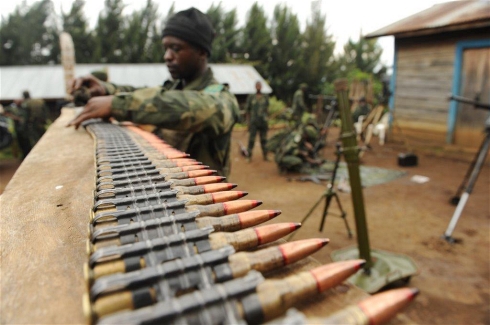
by Christoph Vogel, IRIN
GOMA — This week, a long-awaited military offensive began against a Rwandan rebel group based in eastern Democratic Republic of Congo. It had been planned as a joint operation between Congolese government forces and a unique combat unit of United Nations peacekeepers. But by the time the gunfire began on Tuesday (Feb. 24), the partnership had broken down and the UN had been side-lined.
Three days later, the UN mission in DRC, known as MONUSCO, tweeted: "The #FARDC [DRC army] is carrying out the operation alone after rejecting support from #MONUSCO." How did it come to this?





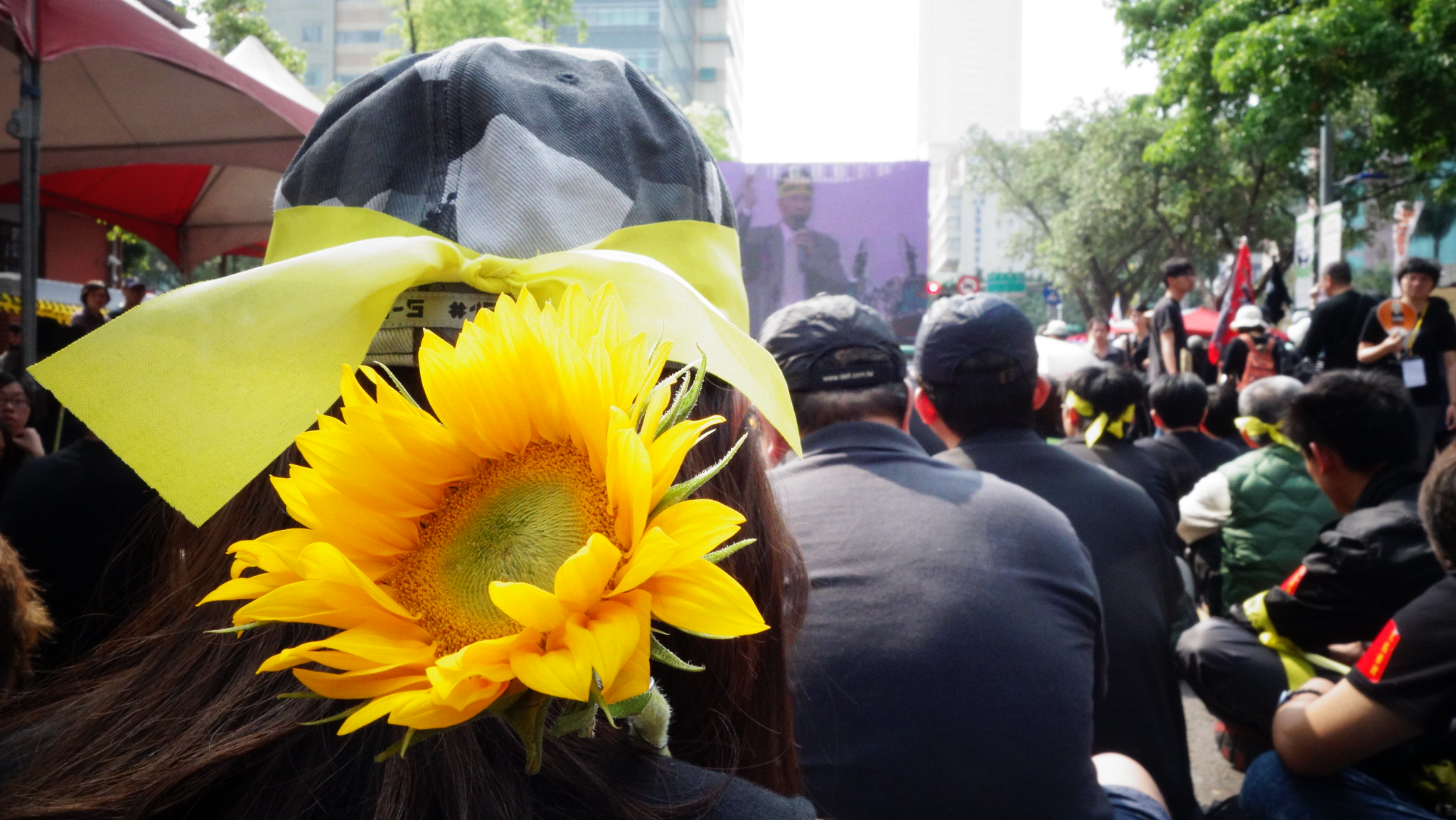










Recent Updates
1 day 15 hours ago
1 day 16 hours ago
1 day 16 hours ago
4 days 19 hours ago
1 week 2 days ago
1 week 3 days ago
1 week 3 days ago
1 week 3 days ago
1 week 4 days ago
1 week 4 days ago